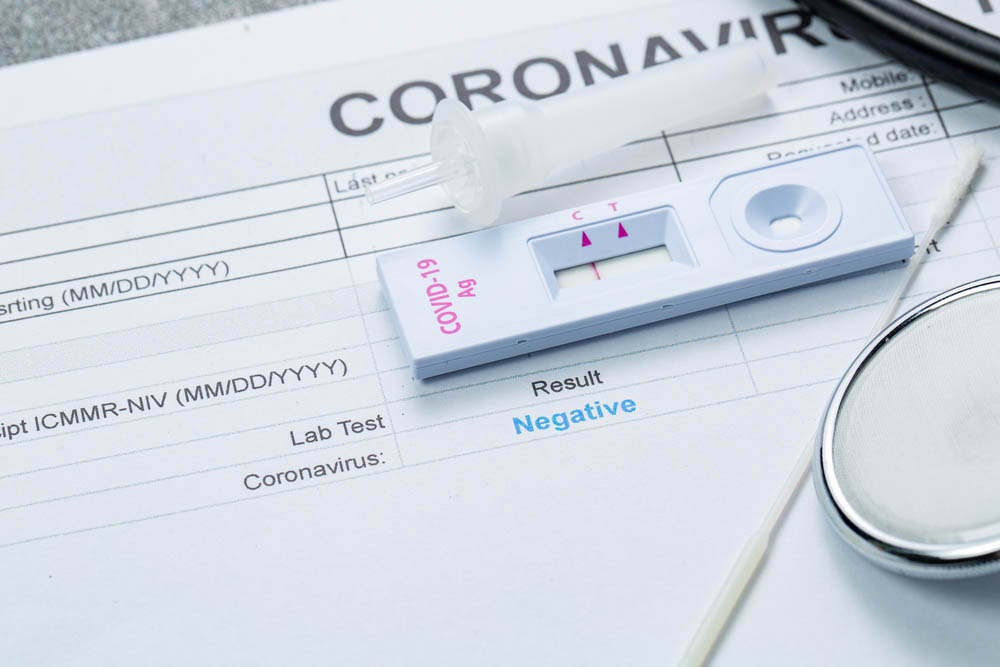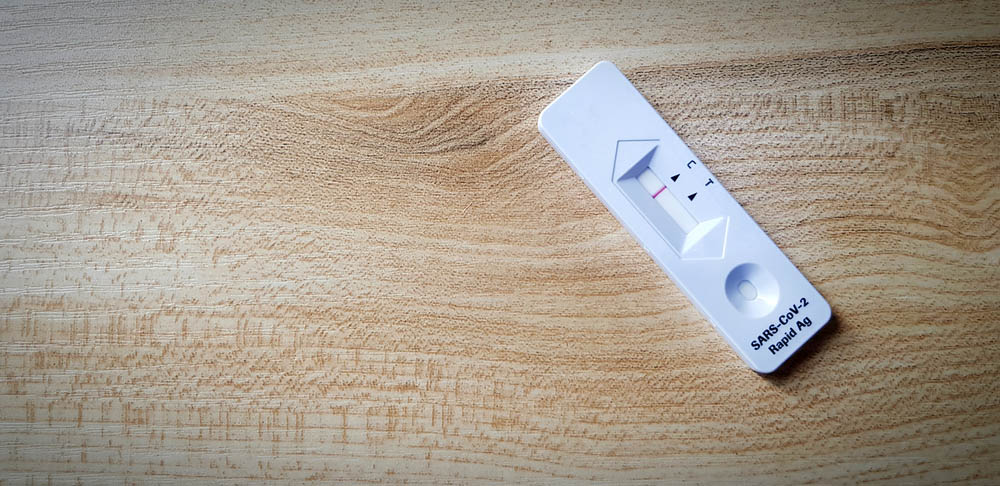True to its name, rapid antigen tests provide a quick and efficient means of detecting COVID-19. With results available within 30 minutes, these tests offer a convenient and accessible solution if you want to know your infection status.
In this article, we’ll look into the intricacies of rapid antigen testing, as well as its benefits and role in controlling the spread of COVID-19.
What is a rapid antigen test used for?
The rapid antigen test is used for detecting the presence of antigens, specifically the proteins of SARS-CoV-2, which causes COVID-19. With this test, you can easily identify your infection status and take the necessary steps for treatment while preventing further transmission.
These tests are beneficial for those who require fast and accurate results, such as:
- Healthcare workers
- Frontline personnel
- Travelers
- Those who need to participate in high-risk activities
Since its turnaround time is within 30 minutes, those who need it can quickly make an informed decision regarding isolation, treatment and contact tracing.
While rapid antigen tests are highly specific, they may have a slightly lower sensitivity compared to the gold standard PCR test.
If you’re suspicious that you have COVID-19 but the rapid antigen test yields a negative result, it’s recommended to do confirmatory testing with PCR.
How to perform and read the test?
There can be differences in the test instructions depending on the test kit’s manufacturer. For reliable results, follow the manufacturer’s recommendations and guidelines when performing and interpreting the results of your rapid antigen test.
Here’s how it goes.
- Collect a swab sample from the nose or throat of the person being tested.
- Place the sample in a liquid containing soap and salt, which helps break apart particles and cells.
- Depending on the specific type of test, the liquid is applied to a test strip that contains antibodies specific to SARS-CoV-2. If the virus is present in the sample, the antibodies on the test strip will bind to the antigens, resulting in a visible line indicating a positive result.
Since antigen tests are relatively easy to perform and interpret, they don’t require special training. However, this paves way for user errors, especially if you don’t follow the instructions.
Antigen tests may also be less accurate in the early stages of infection, particularly in asymptomatic individuals.

Is rapid antigen test safe?
Rapid antigen tests are widely used as a diagnostic tool due to their speed and convenience.
While they’re generally considered safe, remember that no test is 100% accurate.
False-negative results can occur, particularly in the early stages of infection when the viral load is low. This means that if you receive a negative result on the rapid antigen test, you should still follow public health guidelines, such as wearing masks and practicing social distancing, to prevent the spread of the virus.
If you’re exhibiting COVID-19 symptoms and your antigen test shows negative, use a PCR test to confirm your infection status.
What to do if the test result is positive?
If your rapid antigen test result is positive, self-isolate to avoid further transmission of the virus. This means staying at home and avoiding close contact with others, especially those who are at higher risk of severe illness, such as:
- The elderly
- Kids
- Individuals with pre-existing medical conditions
Next, inform your healthcare provider about the positive test result. They can provide guidance on what steps to take next, such as getting a confirmatory PCR test or seeking medical treatment if symptoms worsen.
Then, cooperate with public health authorities who may be conducting contact tracing efforts. Provide them with accurate information about your contacts to help prevent further spread of the virus.
During this time, continue practicing good hygiene measures. Monitor your symptoms closely and seek medical attention if they worsen or if you have trouble breathing.
Who should get a rapid test?
Rapid antigen tests are recommended for those who need quick results to determine their COVID-19 status. These tests are especially useful for those who require immediate confirmation of their infection status, such as:
- Healthcare workers
- Emergency responders
- Those with COVID-19 symptoms
- Those who are asymptomatic but have been in close contact with someone who has COVID-19
Where can you buy rapid antigen home testing kits?
Rapid antigen test kits are widely available due to the demand for COVID-19 testing.
If you need to buy a rapid antigen home testing kit, consider these sources:
- Reputable online stores
- Direct from manufacturers
- Trusted pharmacies or drugstores
When purchasing rapid antigen home testing kits, see to it that they’re FDA-approved. Look for kits that have undergone rigorous testing and have proven accuracy in detecting the presence of the virus.
For your convenience, you can check our FDA-approved rapid antigen test kits here.
Key takeaway
Rapid antigen testing is a valuable tool in the fight against COVID-19 due to its quick results and accessibility.
These tests detect the presence of specific viral proteins in a sample and process results within 30 minutes. Although they’re convenient and easy to perform, they may be less accurate than PCR tests, especially in the early stages of infection. They’re also prone to user error, especially if you don’t pay attention to the test kit’s instructions.
Despite these limitations, rapid antigen testing significantly helps in controlling the spread of the virus.




















































